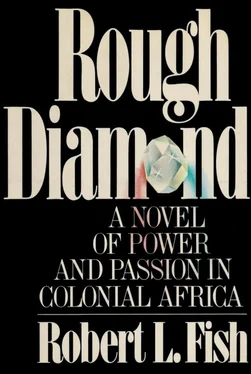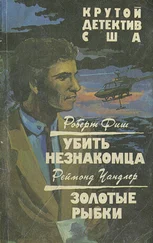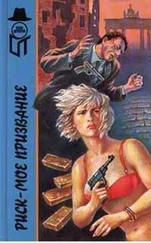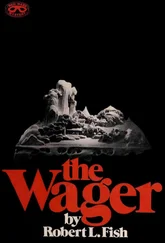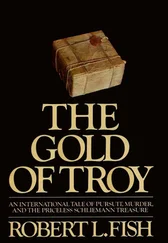“He won’t,” Phillips said, although with less assurance than before. “I’m sure the raid of Captain Jameson, as well as the arms we have here, is still a secret—”
“Are you? And if they are,” the colonel said witheringly, “how long do you suppose it will remain a secret when Jameson keeps sending those telegraphs of his in that idiot code of his that wouldn’t fool a ten-year-old child? ‘The veterinarian is getting impatient. His four hundred horses are almost ready to race and are champing at the bit.’ From Pitsani, for God’s sake, where an elephant would be happy to trade his tusks for a week’s vacation from the place! A great place to train horses!”
“If there had been any suspicion,” John Hammond said mildly, “don’t you suppose Kruger would already have done something about it?”
“Old Kruger is no fool,” the colonel said, his voice irritated. “They say that before he ambushed our boys once, during the ’eighty — ’eighty-one affair, when he was being pushed to act faster, he was supposed to have said, ‘When you’re after killing a tortoise, wait until it puts its head out before you cut it off.’ We don’t know how much he knows or how much he doesn’t know; that’s one of our problems. And when I think that Jameson thinks he can obtain his objective with four hundred untrained men, rather than the fifteen hundred he promised he could raise! Gentlemen, we are nowhere near being prepared for any military action against the Boers, certainly not yet! Am I the only one to see this very apparent fact?”
“The people of Johannesburg will fight with their hands, if need be, against Kruger’s tyranny—” George Farrar, another of the leading Reformers, began stoutly, but Frank Rhodes interrupted angrily.
“Save me the flag-waving, please, George! The people of Johannesburg talk a lot, but most of them will be hiding under the carpet when the first shot is fired. Maybe if they had proper arms and sufficient ammunition, enough of them could do a proper job, but the fact is they haven’t, and I doubt many of them are martyrs at heart. And as for Jameson and his — well, victims, I suppose the best word for them is they won’t be facing Lobengula’s spears this time. They’ll be facing Boer farmers with rifles, who can take down a running springbok at two hundred yards!”
“Except that nobody is supposed to be aware of the attack, certainly not the Boers,” John Hammond said gently. He had taken on the responsibility of getting the proper arms and ammunition into Johannesburg from Kimberley, past the border guards, and was aware of his failure to do a better job. “The answer to success in this venture isn’t just in arms. It lies, in my opinion, in surprise, and so far, despite your evident fears, Colonel, we still seem to have that on our side.”
“And how long do you think we’ll have it — if we have it at all — once four hundred armed men on horseback start marching toward the city? I know Jameson is supposed to cut the telegraph lines when he starts, but the Boer got his messages back and forth damned quick in ’eighty and ’eighty-one long before the telegraph was installed! Don’t get me wrong: surprise is fine, and we need it, but we also need more men and far more ammunition and rifles. And until we get them, I, for one, suggest we postpone this entire venture!”
“I don’t know if Jameson will wait,” Farrar said worriedly. “You know how impatient he is—”
Colonel Rhodes stared at him. “This is a military operation, sir! Jameson is a soldier in it, and that’s all he is, like you and me and the others involved! The commander in chief is my brother, Cecil, in Cape Town. Jameson will do what he is told; he will obey orders! For myself, I intend to go to Cape Town and discuss this matter with Cecil. And I suggest that you, sir,” he added, turning to Hammond, “increase your efforts to bring in ammunition in sufficient quantities, as well as more rifles and several larger weapons, if possible. No, sir, not if possible. They must be brought in!”
There were several moments of silence, all eyes on the colonel.
“Then we’ve said all that needs to be said,” the colonel concluded. “Let’s get somebody in here to get these rifles out of these drums and properly serviced so at least something will be ready, though God knows for what! I will return from the Cape as soon as I can. In the meantime, Jameson will simply have to cool his heels in Pitsani. I suggest that you, Farrar, inform him of that fact, trying to be a bit more subtle in your telegraphic codes than Jameson has been in his. ‘Veterinarian getting impatient!’ My God!” He snorted. “You might also add that the veterinarian would do well to use some of that time to recruit the number of men he promised when this matter was first discussed!”
He turned and stumped from the room, consulting his pocket watch. He was late for his date with a young widow to teach her the rules of the new game bezique, but there was still time before the train left for Kimberley, where he could change for Cape Town. It was a long and tiresome journey, but possibly he might convince the young widow to travel with him…
At Groote Schuur, the beautiful home of the Premier of the Cape Colony, set down and back from the road behind Table Mountain, Barney Barnato was waiting for Cecil John Rhodes, the Premier, to appear for the meeting that had been requested and confirmed by telegraph. The rumors that were beginning to become more and more overtly discussed in Johannesburg regarding the possibility of some direct action by the Reform Committee against the Boer authorities had brought Barney to forsake all other duties and hurry to Cape Town to try to do his best to avert what he was sure could only result in disaster for all concerned. As he waited, looking out at the flowering gardens of the sprawling house, with the rear of Table Mountain rising sharply across the distant road, he wondered how much Cecil Rhodes was involved with the Reform Committee and their prospective action, or whether it was merely another rumor that Rhodes was behind the entire scheme. It was certainly in Rhodes’ interest to try to add the Transvaal to the growing British Empire. Still, it could do no harm to talk to the man; they certainly knew each other well enough by this time. Barney wondered if things might have been different had he taken up Mr. Breedon’s suggestion and run for the Kimberley seat in the Assembly, but he was sure it would have made little difference.
His thoughts were interrupted as the door opened and Rhodes came into the room. Rhodes had aged greatly since he had become Premier, it seemed to Barney; his disappointments in the mineral wealth — or, rather, lack of it — in Rhodesia, together with the responsibilities of running the affairs of the large Cape Colony, seemed to have weighed on Rhodes to an unusual degree. His big body, always tending to slouch, was now bent more than ever, his complexion was pasty as if it missed the sun of Kimberley, and he looked unwell, as if the illnesses of his youth had returned multiplied by the intervening years. Yet, as Barney knew, the man was only forty-two years of age, a year younger than Barney himself.
Rhodes merely brushed Barney’s outstretched hand and sank into an upholstered chair, looking at Barney broodingly, as if the meeting were taking his time from things more important.
“Well, Barney, you said your mission was urgent. Has it anything to do with the mines or their output?”
Barney disregarded the question entirely. He sat down in a chair across from Rhodes. “You know there’s trouble in Johannesburg, Cecil,” he said without attempting to beat about the bush. “There has been for years, but it’s coming to a head. The Reformists are looking for a fight, and if they’re not careful they’ll get one. And it may well be one they won’t like. I don’t know how much you’ve kept up to date on the activities of the Reform Committee—”
Читать дальше
